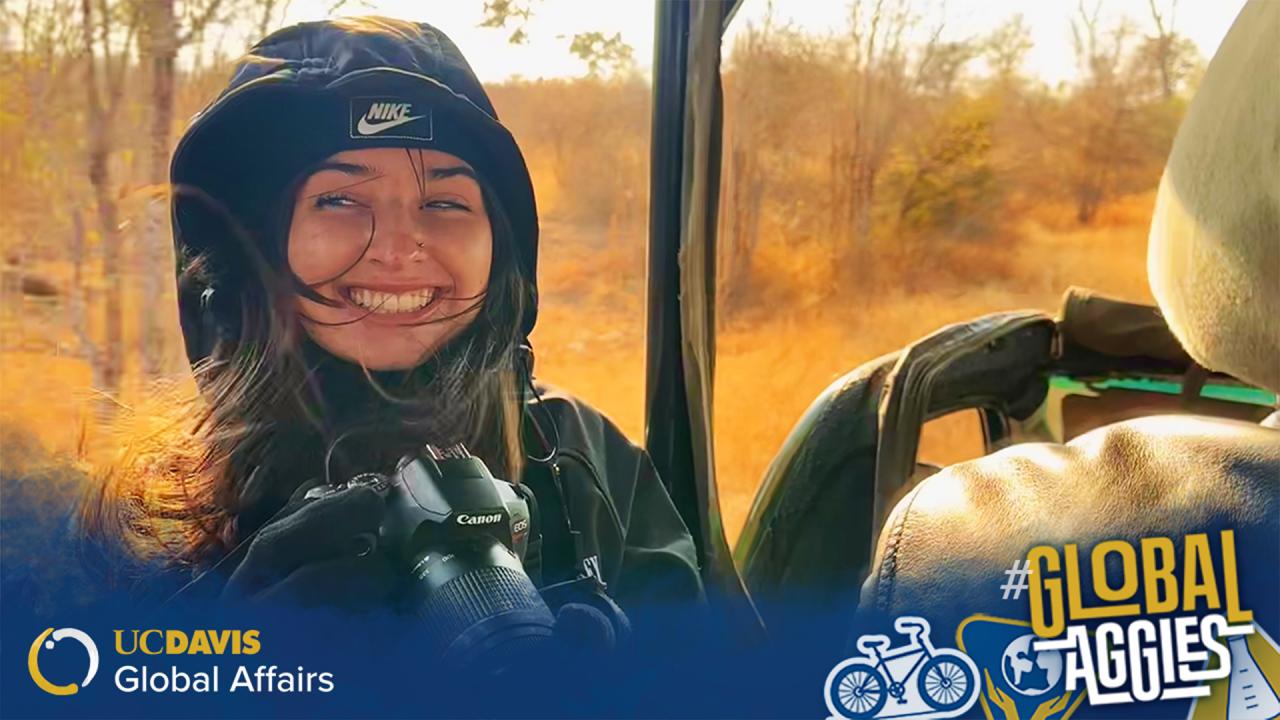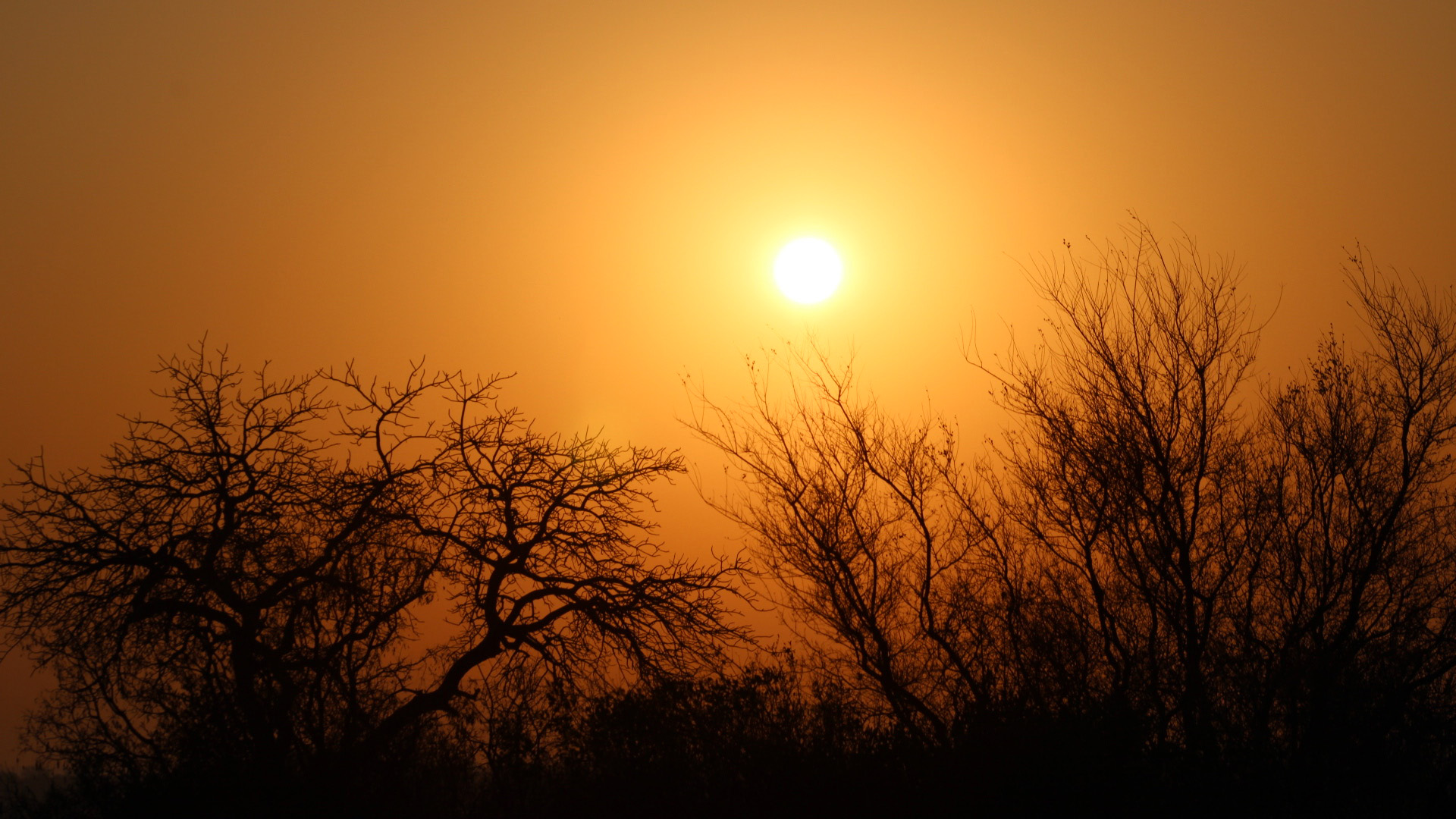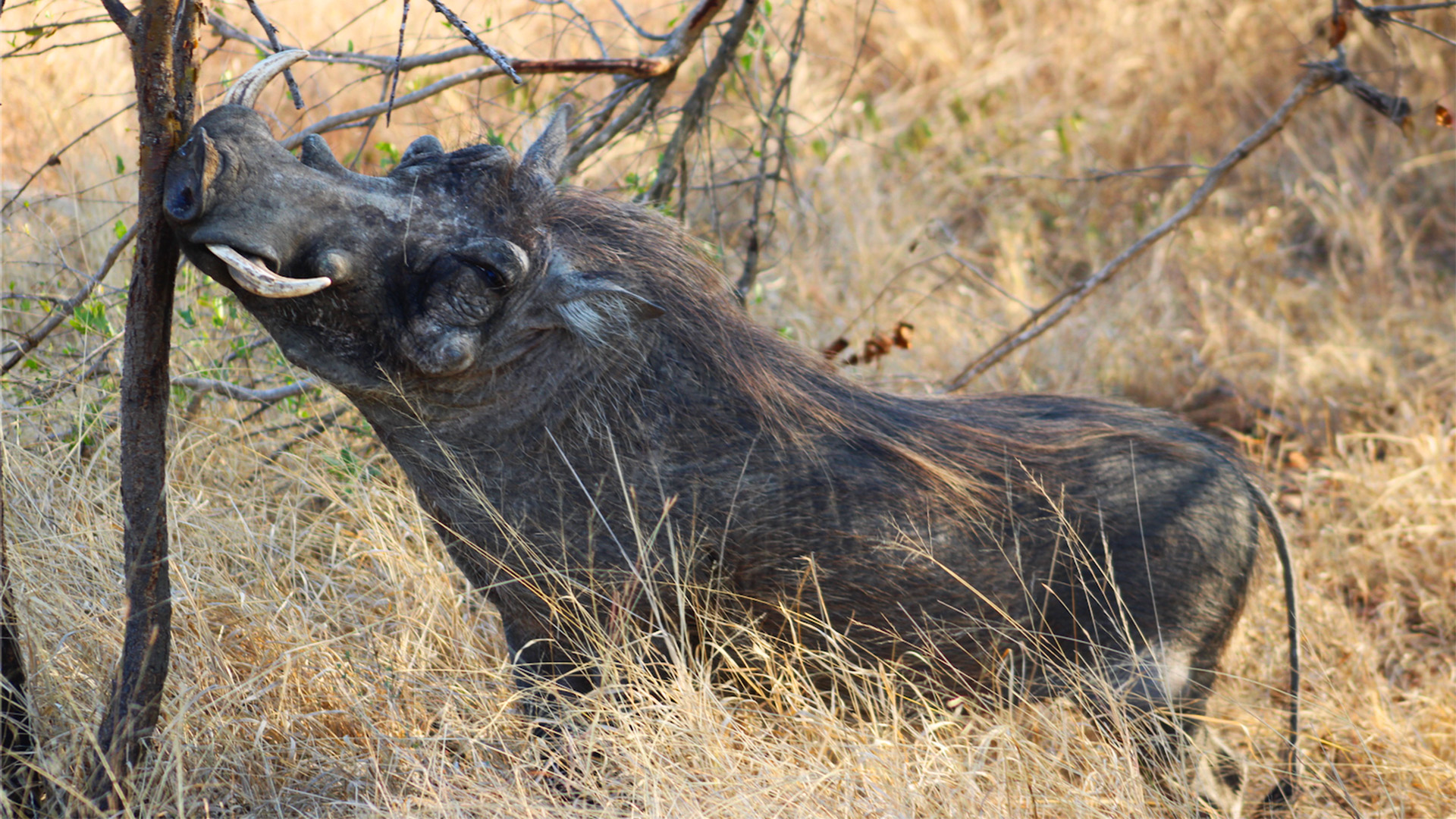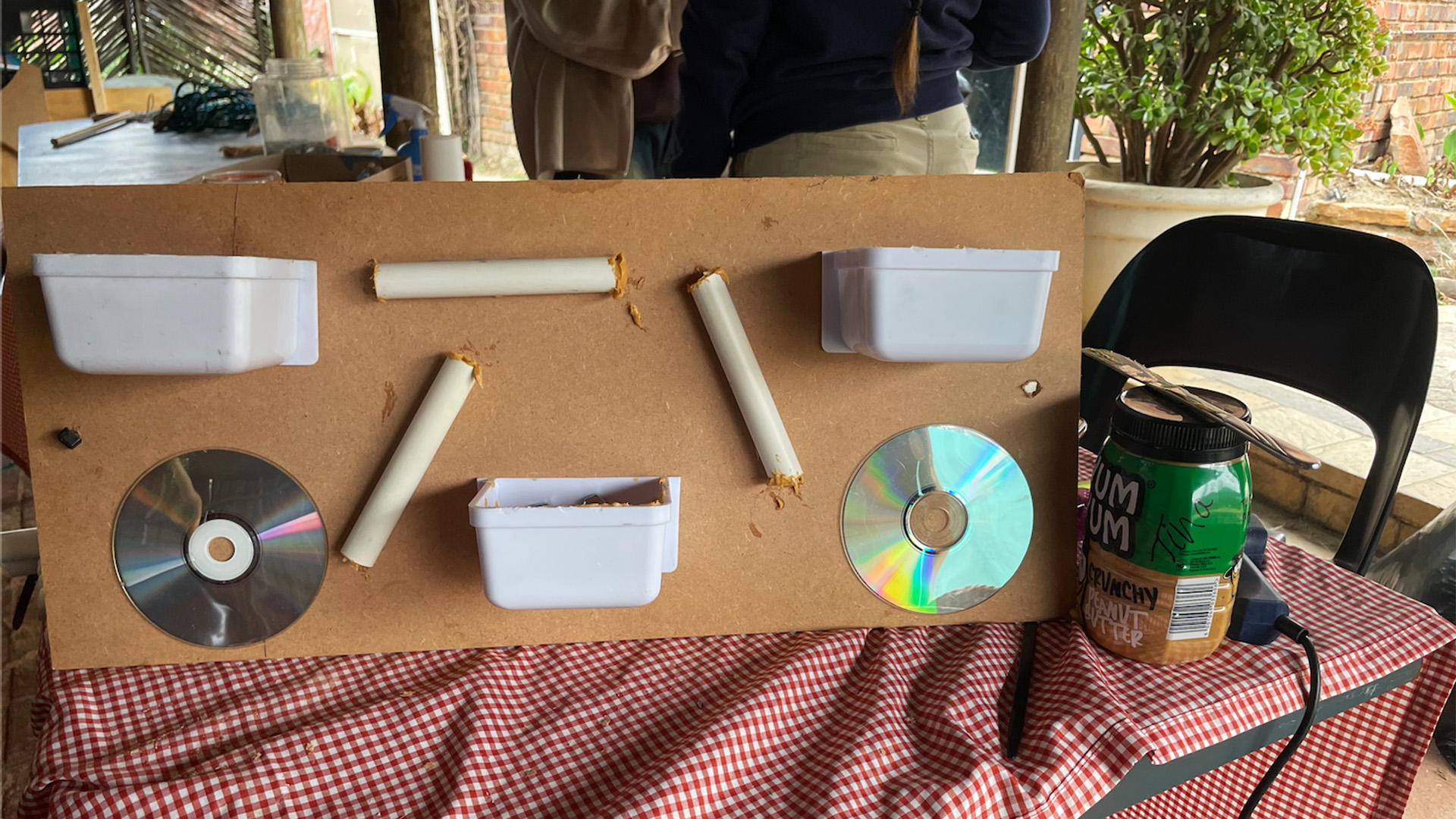
Sutures, Safaris and Self-Discovery: Studying Zoo Medicine in South Africa
Name
Amaya Lewis
Majors
Animal Science and Wildlife, Fish and Conservation Biology
Class Standing
Junior
Graduation Year
2026
Virtual or In-Person
In-Person
Program Title, Location, Duration
Loop Abroad - South Africa Zoo Medicine, 2 Weeks
What motivated or led you to participate in your study abroad program?
Studying abroad has been a top priority of mine since I started college, as I believe it’s one of the best ways to shape a person’s identity and challenge existing beliefs about the world. As someone who wants to pursue a career in veterinary medicine, particularly with wild or zoo animals, I was immediately drawn to this program when it was presented during one of my Animal Science classes. The program takes place at Lory Park Animal and Owl Sanctuary, an accredited zoo known for its dedication to conservation through research and education—initiatives which I am passionate about.

What was your experience like in this program? What did you learn from your experience: interacting with other people and cultures; academics; addressing global challenges; and/or developing global skills and leadership?
The program was pre-veterinary focused, and we participated in various activities pertaining to veterinary medicine. I acquired hands-on experience and skills with a variety of species at the zoo, while also learning from lectures, labs and interactions with veterinarians and zoo staff. Being in South Africa was an additional educational component, allowing me to explore the culture, mindset, hopes, history and issues specific to the country and its people. What was particularly interesting to me was learning about the most pressing conservation concerns in the country. Among the zoo’s highest priorities is raising awareness about threatened native species, such as the vulnerable black-footed cat and the declining rhino populations.
What was the most challenging part of your program and the most rewarding?
The most challenging part of the program was coordinating the travel, since the flights are long and must be dependable. One of my flights was delayed, another was cancelled and my luggage was misplaced at one point by the airline. Needless to say, transportation was stressful to figure out at times. However, the Loop Abroad staff were very accommodating and worked to help us reschedule our flights and coordinate arrivals or departures when needed. I recommend looking into flights as soon as possible to avoid this issue.
The most rewarding part of the program was the connections I made. All the staff at the zoo were lively, fun, compassionate people who embraced us with open arms. The three Loop Abroad veterinarians were all from different backgrounds and parts of the world. The opportunity to create personal relationships with them and hear about their extensive experiences was extremely motivating for me to continue on the path that I am on.

What’s one of your most memorable experiences from your program?
The most memorable experience of the program was the weekend we spent at Kruger National Park. Since I grew up watching National Geographic, being able to see African wildlife in person was surreal. We drove around in an open safari vehicle from six in the morning to the evening, listening to our tour guide’s valuable knowledge about every animal we encountered. The day was full of excitement and truly unforgettable.
What was a typical day like on your program?
Every morning, we worked with the zookeepers, rotating between diet preparation and enclosure maintenance for one of four main groups of animals: primates, birds of prey, reptiles and cats (big and small). In the afternoons, we participated in labs such as necropsies or listened to insightful lectures by the veterinarians. On designated vet days, under professional supervision, we conducted blood draws on reptiles, chicks and rabbits, vaccinated birds of prey, operated a dart gun, practiced suture techniques, and much more. The research portion of the program was my favorite. We observed animal behavior and collected data through detailed ethograms. Then, we developed and implemented a goal-oriented enrichment device designed to encourage curiosity and increase engagement with the animal's environment. In the evenings, we enjoyed fun activities organized by the support staff, such as yoga sessions and movie nights.
What advice do you have for someone considering your program or a global experience, in general? What would you like to share with students who might have similar identities or experiences as you?
The best advice I have if you are considering studying abroad: just do it! Initially I had some reservations, but I’m glad I decided to take the leap. I would strongly encourage anyone with similar interests to do the same. Being in a new country and immersing yourself in a culture other than your own forces you to grow out of your comfort zone and get to know yourself on a new level. I’d recommend spending time researching the right program for you—location, subject, duration, etc.—to ensure you have the best experience imaginable.
For this program specifically, bring a camera or free up storage on your phone to take pictures of the beautiful country and wildlife (especially during the safari).

What was your biggest concern in regards to participating in the program? Were you able to overcome that concern, and if so, how? What advice would you give someone who has similar concerns?
My biggest concern regarding the program was the cost. However, I collaborated with Global Learning Hub advisors and did my own research on available scholarships to help me through the program. The Benjamin A. Gilman Scholarship played a huge role in alleviating my financial stress, so I would highly recommend looking into that. The Gilman network was supportive during my application process and beyond, continuing to provide me with assistance even while I was abroad and after returning home.
What is something you wish you knew before joining the program? If knowing this previously, how do you think this would have impacted your experience?
I wish I had known to leave more room in my luggage! It was hard not to buy souvenirs from the places I visited, and I didn’t think ahead very well in terms of storage. However, keep in mind that for this program, there’s limited availability of laundry services onsite. Also, remember that you will have to convert your currency (which I highly recommend doing far in advance of your trip) so you can buy personal items abroad. Lastly, know that the power adapters are different in South Africa, so you should buy a universal adapter before you go to charge your electronics.
How do you think your program experiences will benefit you in the future—thinking academically, future career goals, or personally?
The program experiences have helped further my confidence in veterinary techniques and my knowledge of wildlife identification, husbandry and conservation. From various discussions with others on the trip, I have a broader idea of potential careers related to wildlife that I was not initially aware of. My connections with the veterinarians will be beneficial throughout my journey, as I not only got to know them as mentors, but also on a personal level.